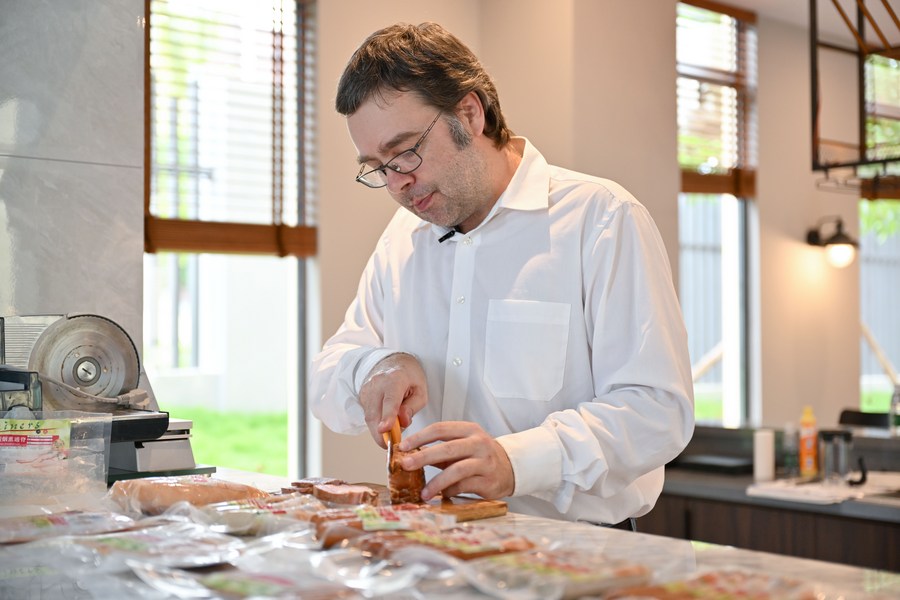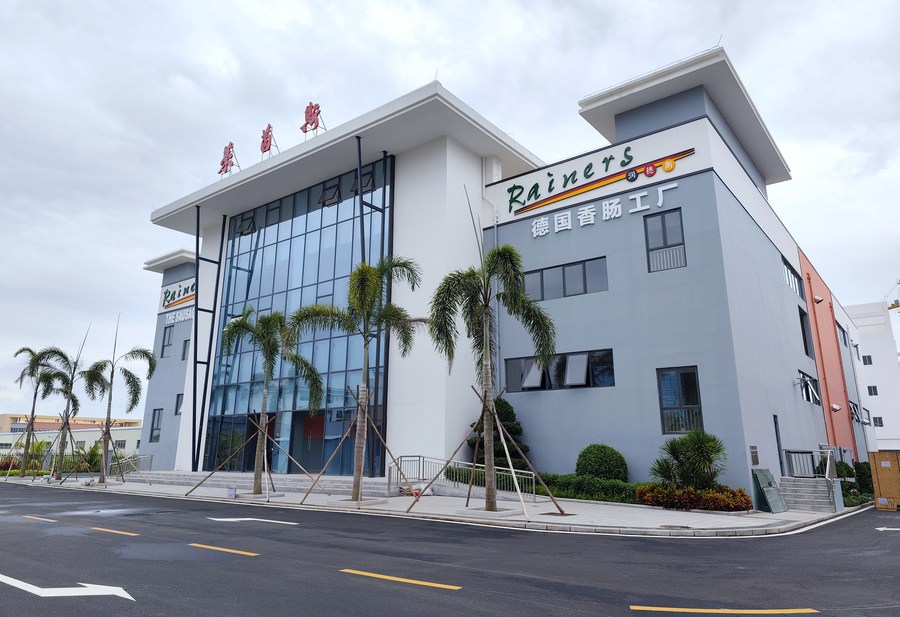|

Kay Feske slices processed meat in his office building in Ding'an, south China's Hainan Province, Nov. 7, 2022.(Xinhua/Guo Cheng) HAIKOU, Nov. 13 (Xinhua) -- Kay Feske, a German architect, never imagined that one day he would be known as "sausage guy" in south China's island province of Hainan. Feske's story dates back to 2003 when he met his future wife Yang Aiwei, who was then studying landscape design in Germany and working as an intern in the same architecture firm as Feske. They gradually fell in love but had to face a separation the following year as Yang moved to Hainan for a project. A few months later, Feske decided to take a few weeks off to visit her in Hainan. It was originally planned to be a short trip. Upon his arrival, however, Feske found that the island province is a bit similar to his hometown Rostock featuring agriculture and tourism, and he promptly fell in love with its unique charm. The couple decided to settle down in Hainan. They got married in 2005 and opened their own architectural design firm the next year. As architects with numerous projects across the island, Feske and Yang spent a great deal of time in hotels, where they discovered that most of the sausage products mainly come from big cities like Beijing and Shanghai. "As a German, I am familiar with sausages as they are part of our daily food," said Feske. "Why do they have to come from the far north?" he thought to himself. The couple also sensed potential in Hainan's agriculture market. Consequently, after running the architecture firm for 10 years, they forayed into their second venture of meat processing and started from scratch. They established their company in Ding'an City in 2015, with a 500-square-meter factory. They imported all the machines from Germany and also hired a professional butcher from the country. 
This photo taken on Nov. 7, 2022 shows the newly built sausage factory of Kay Feske in Ding'an, south China's Hainan Province.(Xinhua/Guo Cheng) Their sausages, featuring a combination of German culinary techniques and local Chinese ingredients, were an instant success, gaining particular popularity in Hainan's hotels and restaurants. As a result, Feske earned the nickname -- the "sausage guy". Over the years, Feske's sausage business has flourished with his product market expanding from the island to other cities like Shanghai and Guangzhou. In order to meet the larger market demand, they began to build a new factory in 2019 with the help of the local government and it is slated to start production in December this year. The daily output is expected to increase from 1.5 tonnes to nearly 10 tonnes after the new factory is put into operation. Having lived in Hainan for 18 years, Feske said he has seen "unbelievable changes" all around the island. "I have seen a lot of development and the people have always been very nice to me. It's like my home." Since 2020, Hainan has officially launched the construction of the free trade port. Feske believes it would help his business immensely in the future, particularly in the import-export sector. The German architect-turned-entrepreneur said he is very confident in Hainan's future and that it has great potential. "I really hope the free trade port can attract more international companies to set up branches or their headquarters here and bring more expats to Hainan," he added. With the new factory, Feske aspires to make his sausage brand more well-known not only in Hainan but throughout China. He is even considering selling the sausages to other countries, especially in Southeast Asia.
|